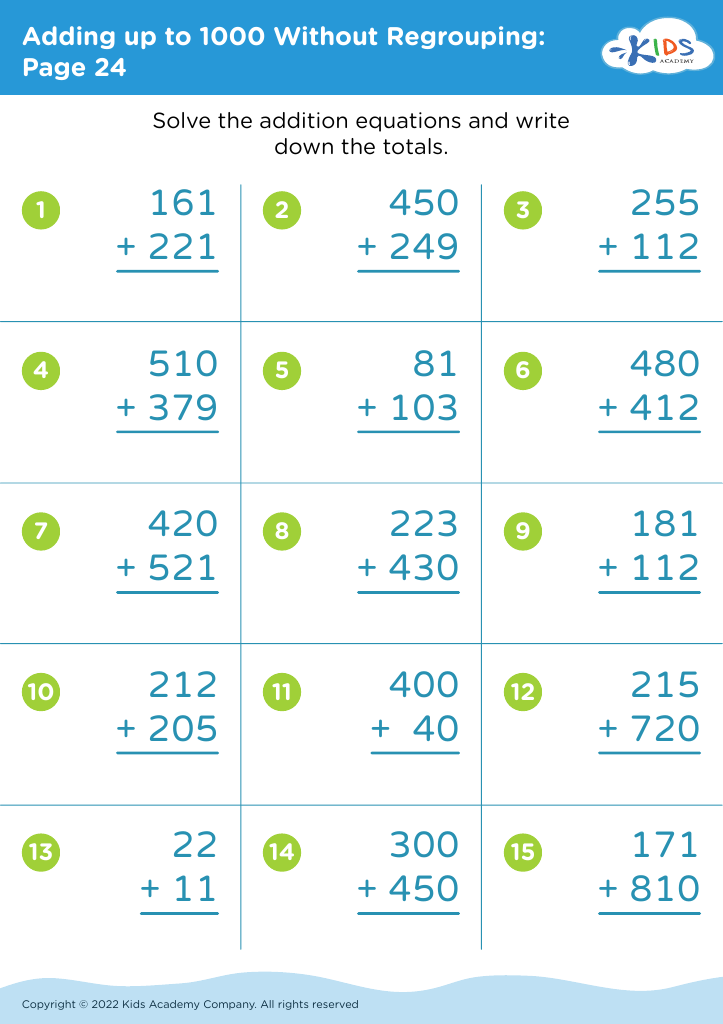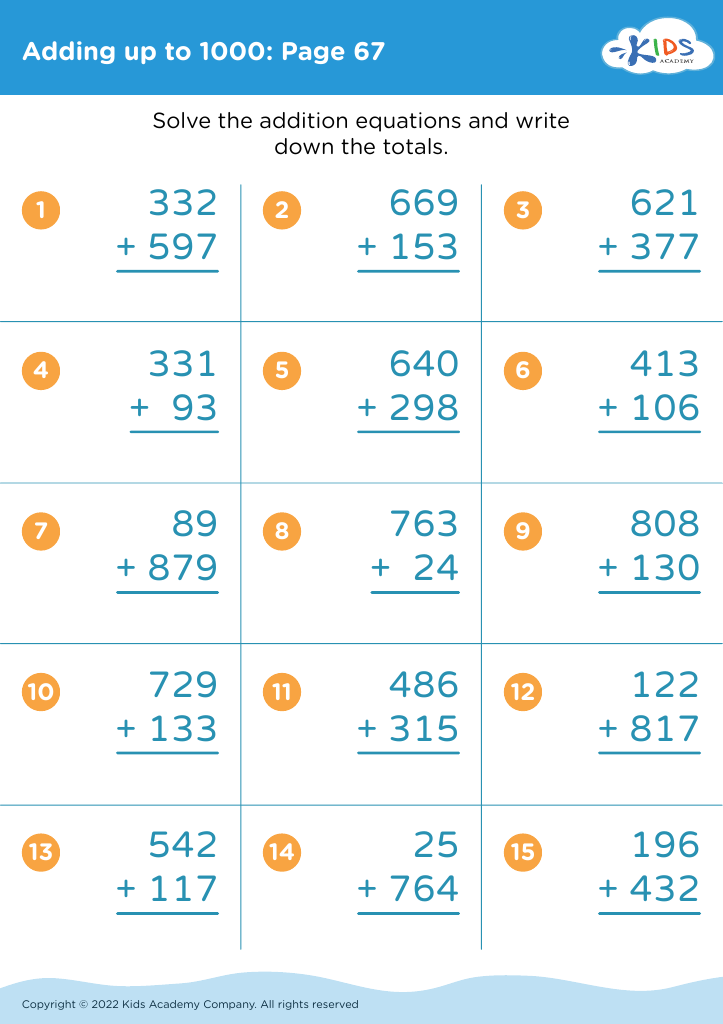Adding up to 1000 for 8-Year-Olds through educational worksheets is a pivotal step in a child's mathematical development. At this age, kids are transitioning from foundational arithmetic towards more complex concepts, making it the perfect time to introduce adding larger numbers. These worksheets are not only about mastering the skill of addition but also about building confidence in mathematical reasoning and problem-solving.
Worksheets specifically designed for adding up to 1000 cater to the learning pace of 8-year-olds, incorporating fun and engaging exercises that capture their interest. These resources often include a variety of problems, from simple to more challenging ones, ensuring that every child finds something at their level. By gradually increasing the difficulty, these worksheets help maintain a steady learning curve, making the concept of adding large numbers less intimidating and more accessible.
Moreover, practicing with worksheets allows children to develop patience and attention to detail, crucial skills for mathematical proficiency. They learn to work systematically, breaking down larger problems into more manageable parts. This approach not only benefits their math skills but also enhances their overall academic performance.
In summary, worksheets on adding up to 1000 for 8-year-olds are an invaluable tool. They not only solidify foundational math skills but also foster a positive attitude towards learning complex concepts, setting the stage for future academic success.















